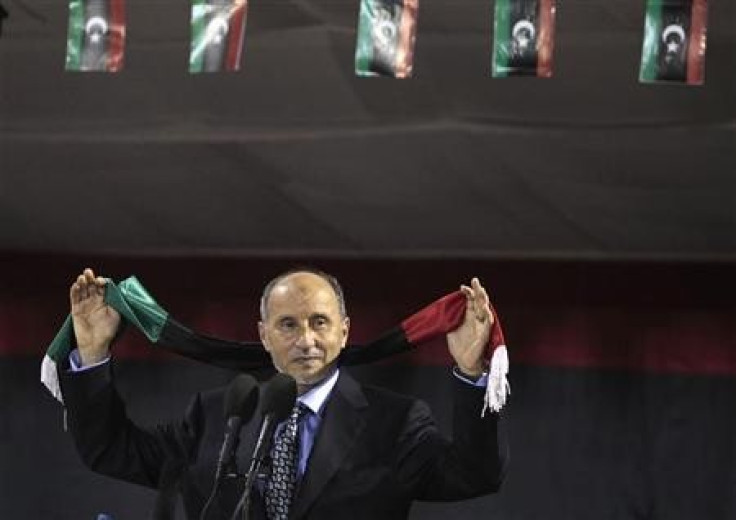Libya’s New “Moderate Islamic Rule.” Is That What People Fought For?

As the National Transitional Council leaders struggle to assert control over Libya, they have now pledged "moderate" Islamic rule, but without police to provide security, Gaddafi loyalists fighting on, threats of internal divisions and rebels forces accused of war crimes, religion would seem to be a lesser priority.
Interim leader Mustafa Abdul Jalil spoke from Tripoli's main square Monday, just two days after arriving from Benghazi. He tried to reassure the West that Gaddafi's tyranny would not be succeeded by a radical Islamic regime.
"We will not accept any extremist ideology, on the right or the left. We are a Muslim people, for a moderate Islam, and we will stay on this road," he told the crowd in Martyrs Square, formerly Green Square.
But Jalil gave few details of the implementation of the transitional phase and the reforms that are so needed.
After years of oppression from Gaddafi, what many Libyans want is the ability to criticise their government and protest in the streets without being shot. The rebel movement will now have to prove it is a tolerant government, which will prove tricky at a time where it also must assert its authority.
Libya is now faced with numerous domestic problems, with internally displaced refugees, wounded from the war, internal divisions with tribal leaders demanding a share of the power, economic and social conditions that require new policies and new strategies, and the need to somehow enable former Gaddafi loyalists to be part of the 'new' Libya, so religion should for now left to be dealt as a private matter.
If the council is also set on building a democratic and fair Libya, it also cannot ignore Amnesty International's warning that NTC fighters had also possibly committed war crimes.
Throughout the Libyan conflict right groups and activists have denounced Gaddafi and his troops' brutality and the leader along with his son and a former minister has been indicted for war crimes by the International Criminal Court.
But soon allegations of human rights abused by the NTC forces also emerged. Now Amnesty says that in the first days of the uprising against Gaddafi's rule groups of protesters killed a number of captured soldiers and suspected mercenaries.
"Some were beaten to death, at least three were hanged, and others were shot dead after they had been captured or had surrendered," said the report, "The Battle for Libya -- Killings, Disappearances and Torture."
"The NTC is facing a difficult task of reigning in opposition fighters and vigilante groups responsible for serious human rights abuses, including possible war crimes but has shown unwillingness to hold them accountable," the report also states.
Meanwhile, proving he is still willing to stir up trouble, Gaddafi issued yet another message to his supporters, in a statement read out on Syria-based Arrai Oruba television, this time depicting the situation as a "coup" which he vowed to continue to resist.
Still in hiding, the colonel has now taken a pan-Africanist approach to the conflict, blaming "colonialists" for the uprising and warning "It is not possible to give Libya to the colonialists again. ... All that remains for us is the struggle until victory and the defeat of the coup."
Surprisingly, even with the NTC now in charge of large parts of the country, Gaddafi forces are still fighting and launched ferocious counterattacks Monday on the oil refinery town of Ras Lanuf in the east, on the road towards Gaddafi's hometown of Sirte, and at Bani Walid southeast of Tripoli.
Gaddafi fighters killed at least 12 NTC soldiers at Ras Lanuf, an NTC military spokesman told AFP.
Meanwhile confrontations between the Gaddafi and NTC forces in Bani Walid have caused civilians to flee the city.
As the NTC has now managed to oust Gaddafi it must now focus on securing the capital and the rest of the country while restoring some kind of unity. The war has caused large numbers of casualties and leaders themselves have now acknowledged it will take more than 10 years to rebuild the country, so let us hope they have more than creating a "moderate Muslim state" on their agendas.
© Copyright IBTimes 2024. All rights reserved.





